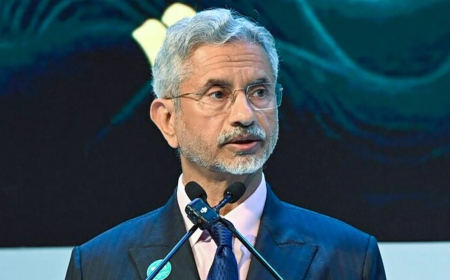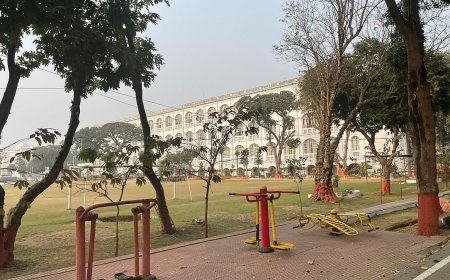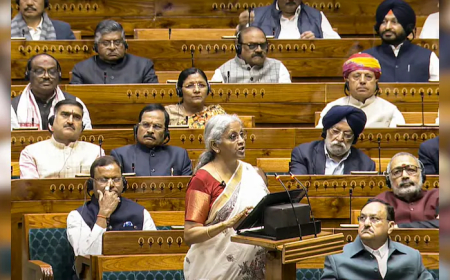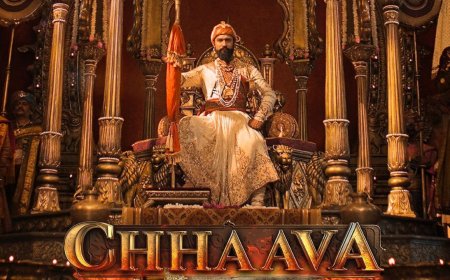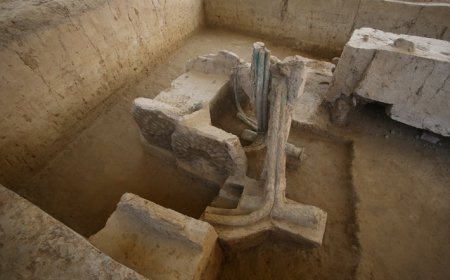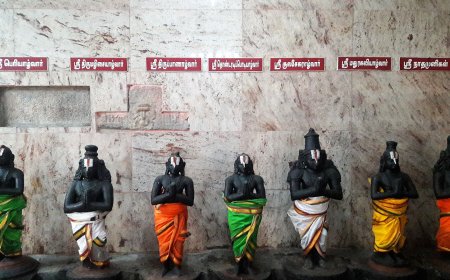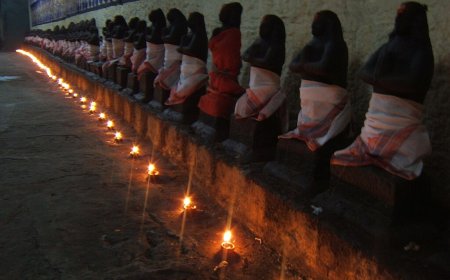Alvars: The Mystical Devotees of Vishnu
The Alvars (Tamil: ஆழ்வார், romanized: Āḻvār, lit. 'The Immersed') were the Tamil poet-saints of South India who espoused bhakti (devotion) to the Hindu preserver deity Vishnu, in their songs of longing, ecstasy, and service.
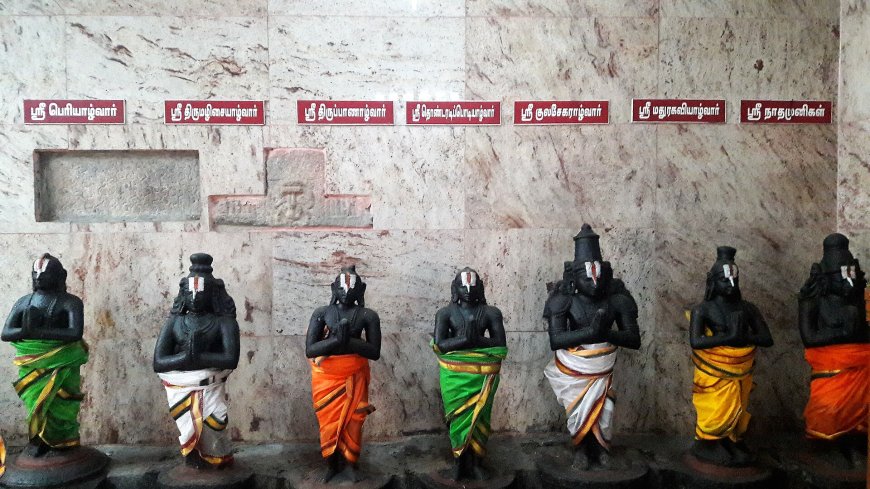
The Alvars, a group of 12 saint-poets from Tamil Nadu, are celebrated for their deep devotion to Lord Vishnu and their contributions to the Bhakti movement. Flourishing between the 6th and 9th centuries CE, their hymns and songs extol the virtues of Vishnu and his incarnations, particularly Krishna and Rama. Despite their immense contributions to the spiritual and cultural heritage of South India, the Alvars are often overshadowed in the broader narrative of Indian religious history.
The Alvars hailed from various social strata, ranging from kings to humble peasants, showcasing the inclusive nature of the Bhakti movement. Some of the most renowned Alvars include:
- Poigai Alvar: Believed to be the earliest of the Alvars, his hymns are known for their philosophical depth.
- Bhoothath Alvar: His verses emphasize the emotional aspects of devotion.
- Pey Alvar: Known for his mystical and visionary poetry.
- Nammalvar: The most prolific and influential Alvar, his works form the cornerstone of Vaishnavite theology.
- Andal: The only female Alvar, celebrated for her passionate devotion to Lord Vishnu and her literary masterpiece, the Tiruppavai.
Each Alvar's life story is interwoven with miraculous events and profound spiritual experiences, which they expressed through their devotional poetry.

What Did They Do?
The Alvars composed a rich corpus of devotional literature known as the Divya Prabandham, a collection of 4,000 Tamil verses. This anthology is divided into several works, each focusing on different aspects of Vishnu's divine play and the nature of the relationship between the devotee and the divine. Key texts include:
- Tiruvaymoli by Nammalvar: Often regarded as the Tamil Veda, this work is celebrated for its philosophical insights and devotional fervor.
- Tiruppavai by Andal: A set of 30 verses sung during the Tamil month of Margazhi, emphasizing the simplicity and purity of devotion.
The Alvars' hymns were not just expressions of personal devotion but also served as theological discourses, setting the foundation for the development of the Sri Vaishnavism tradition.
Why Are They Important?
The Alvars' contributions are manifold:
- Spiritual Influence: They democratized spirituality, making it accessible to people of all social backgrounds. Their teachings emphasized the importance of personal devotion and direct connection with God, bypassing rigid ritualism and caste barriers.
- Cultural Impact: The Alvars' hymns enriched Tamil literature and culture. Their works are considered classics and continue to be recited in Vaishnavite temples and households.
- Theological Contributions: Their poems laid the groundwork for the philosophical and theological doctrines of Sri Vaishnavism, influencing later theologians like Ramanuja.
Why Are They Forgotten?
Despite their profound impact, the Alvars are less known today for several reasons:
- Regional Focus: Like the Nayanars, the Alvars' influence was primarily in Tamil Nadu. This regional limitation has contributed to their lesser recognition on a national level.
- Modern Shifts: The spread of modern education and the focus on global culture have often sidelined traditional and regional spiritual figures.

The teachings and lives of the Alvars remain deeply relevant. In an era where materialism often overshadows spirituality, the Alvars' emphasis on pure devotion and ethical living provides timeless guidance. Their hymns, which advocate love, humility, and compassion, can inspire contemporary society to foster deeper spiritual connections and promote social harmony.
To ensure the Alvars' legacy endures, there have been efforts to revive interest in their works. Initiatives include translating their hymns into various languages, incorporating their teachings into educational curricula, and organizing cultural festivals celebrating their contributions.







